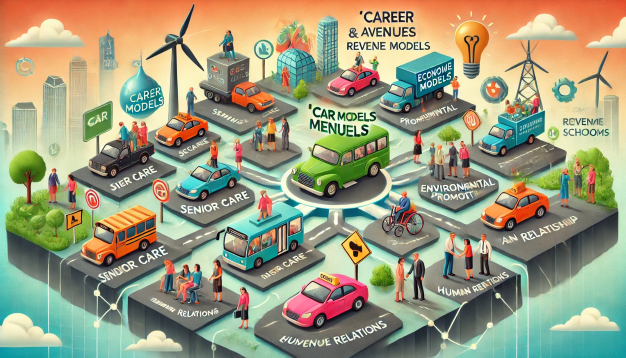Become Resident Editors with Global TV | A Call for Retired Untired | Teachers with a Vision are also Welcome | Represent Global TV around your Residential City or Campus | An opportunity to Do good unto others | Global TV
Addressing Poverty, Senior Care, Environment promotion, Human Relations, Referral Circles, Media Campaigns, PR Initiatives etc. are areas where we can create plenty of Career Avenues and Revenue Models.
NV Paulose Chairman Global TV +91 98441 82044
“Do good unto others” is a timeless philosophy that transcends cultures, religions, and geographical boundaries. This simple yet profound principle encourages us to cultivate kindness, compassion, and empathy towards others. By doing good unto others, we not only bring joy and positivity into their lives but also create a ripple effect of goodness that resounds within ourselves. As we selflessly extend a helping hand, lend a listening ear, or offer a comforting word, we experience a deep sense of fulfillment, purpose, and connection with the world around us. By embracing this philosophy, we can foster a culture of kindness, build stronger communities, and create a brighter future for all.
Water, Water Everywhere, Not a Drop to Drink: This is the Paradox of Economic Realities and Missing Opportunities across Indian Cities and Villages!

The phrase “water, water everywhere, not a drop to drink” is a popular metaphor here to highlight the stark contrast between abundance of career possibilities and missing accessibility for majority of people in Indian economic scenario. Country is progressing but people are kept away from the happening economic world.
Plenty of people are there in want of opportunities everywhere. This is just like the phrase of water, water everywhere as coined by Samuel Taylor Coleridge in his poem “The Rime of the Ancient Mariner.” It has been used to describe situations where resources are plentiful, yet somehow, remain out of reach.
In the context of economics, this phrase takes on a profound significance. We live in a world where opportunities all around are flourishing in abundance. Wealth is increasing and economy is active. Technology is advancing and innovation is rampant. And yet, for a significant portion of the population, these opportunities remain out of reach and elusive, like water that is visible but unreachable.
The paradox is striking. On one hand, we have establishments, businesses, and industries that are thriving, creating wealth. They all supposed to generate more employment on a continuous basis. More employment is the sign of growth even for them. Why then we have a large population that remains disconnected from these opportunities, struggling to make ends meet, and living in poverty?
The art of engaging people beyond traditional methods!
The following analogy of vehicles and drivers is apt here. Imagine a city with plenty of cars, buses, and trucks, but not enough drivers to operate them. The vehicles represent the opportunities that exist in the economy, while the drivers represent the people who need to access these opportunities. Just as the vehicles are useless without drivers, economic opportunities are meaningless without engaging more people who can tap them to perform well.
We are in a beehive wherein most of the bees are kept inactive. We do not even get to know the nuances of teaching people to fish in our ponds while they are engaged in the preparation and promotion of our vast economic eco system. We are not even understanding the kind of mistakes that we are doing by keeping large number of people economically disengaged. They are the people who can take our establishments to enormous levels of performance excellence.
Learn the art of making people to work without salary!
The answer lies in creating a system that enables people to connect with us and to access economic opportunities that are also beneficial for our establishments to flourish and prosper. This is just as teaching people how to drive. Engage maximum number of people in small little economic programs. Let them learn the art of earning. Learning driving need not be in BMWs and Mercedes Benz.
Help people to experience the taste of fruits in small economic chain of social initiatives. Involve people in addressing the pressing issues in the world. Let them be a part of a self-sustainable volunteer model. Engage people in economics and encourage them to become part of your referral network.
Small little CAR Models can be operated in micro units!

Career Avenues and Revenue Models (CAR Models) can be designed effortlessly just by connecting people into pressing issues in the society. Poverty, Senior Care, Environment promotion, Human Relations, Referral Circle, Media and PR etc. are areas where we can create plenty of Career Avenues and Revenue Models.
Just give a start to people by engaging them into Small Revenue Models (SRM) by integrating service, compassion and charity into their daily routines. They will get into entrepreneurship models and gain financial literacy and freedom in the process of prosperity. Those who have got appropriate foundation to begin their career will stay strong in the foundation. They will reciprocate well as well.
CAR Models and “driving schools” can take up sustainable volunteerism to begin with and get into entrepreneurship incubators, or service careers later. We can have Certificate programs, mobile apps, or community initiatives to promote the concept. The key is to create a platform that provides people with the skills, knowledge, and support they need to access economic opportunities.
By doing so, we can unlock the potential of millions of people who are currently excluded from the economic mainstream. We can create an inclusive economy that provides opportunities for all, regardless of their background, education, or socio-economic status. The benefits of such an approach are numerous.
For individuals, it means access to better job prospects, higher incomes, and improved living standards. For businesses, it means a larger pool of skilled workers, increased productivity, and expanded referral networks. For societies, it means reduced poverty, inequality, and social unrest.
It’s time to start driving schools everywhere and teach people the art of economic driving. With the right skills and knowledge, they will flourish, and the BMWs and Mercedes of economic success will be within their reach.





